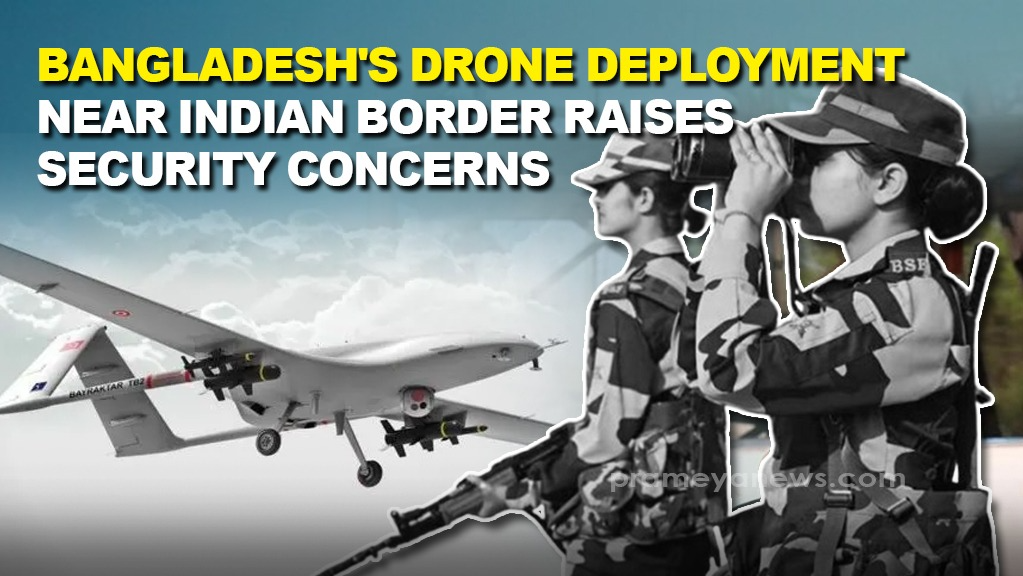

A recent development along the India-Bangladesh border has sparked security concerns in New Delhi. Bangladesh has reportedly deployed advanced Turkish-made drones near its border with West Bengal, prompting India to intensify surveillance and consider countermeasures. This move comes amidst reports of increased terrorist activity and smuggling in the region, particularly following the recent political upheaval in Bangladesh.
The Drone threat:
The drones in question are Bayraktar TB2 unmanned aerial vehicles (UAVs), known for their intelligence, surveillance, and reconnaissance (ISR) capabilities, as well as their potential for conducting light strike operations. Bangladesh acquired these drones earlier this year, significantly enhancing its surveillance capabilities along its borders.
India's concerns:
While Bangladesh has stated that the drone deployment is purely for defensive purposes, India remains wary. The strategic implications of positioning such advanced drones in a sensitive border region are significant, particularly given the recent political instability in Bangladesh and the reported resurgence of extremist elements.
Intelligence inputs suggest that terrorist groups and smuggling networks are exploiting the political turmoil to infiltrate into India. This has raised concerns about potential cross-border terrorist attacks and increased smuggling of arms, drugs, and other illicit goods.
India's response:
The Indian Armed Forces have been placed on high alert and are closely monitoring the situation. They are actively verifying reports of the drone deployment and assessing the potential threat they pose. India has a range of options to respond to this development, including deploying its own advanced drones, such as the Heron TP, and intensifying counter-drone operations in sensitive border areas.
Heightened vigilance:
The combination of political instability in Bangladesh and the deployment of advanced UAVs near the Indian border necessitates heightened vigilance. India is leveraging intelligence-sharing mechanisms and cooperating with international partners to closely monitor the situation and ensure the security of its borders.
The deployment of Bayraktar TB2 drones by Bangladesh near the Indian border has added a new dimension to the security challenges in the region. While both countries maintain friendly relations, the potential for these drones to be used for nefarious purposes by non-state actors or in the event of further political instability in Bangladesh cannot be ignored. India's proactive response, including increased surveillance, intelligence gathering, and potential counter-drone measures, underscores its commitment to safeguarding its borders and national security. The situation warrants continued close monitoring and proactive measures to mitigate any potential threats and maintain peace and stability in the region.